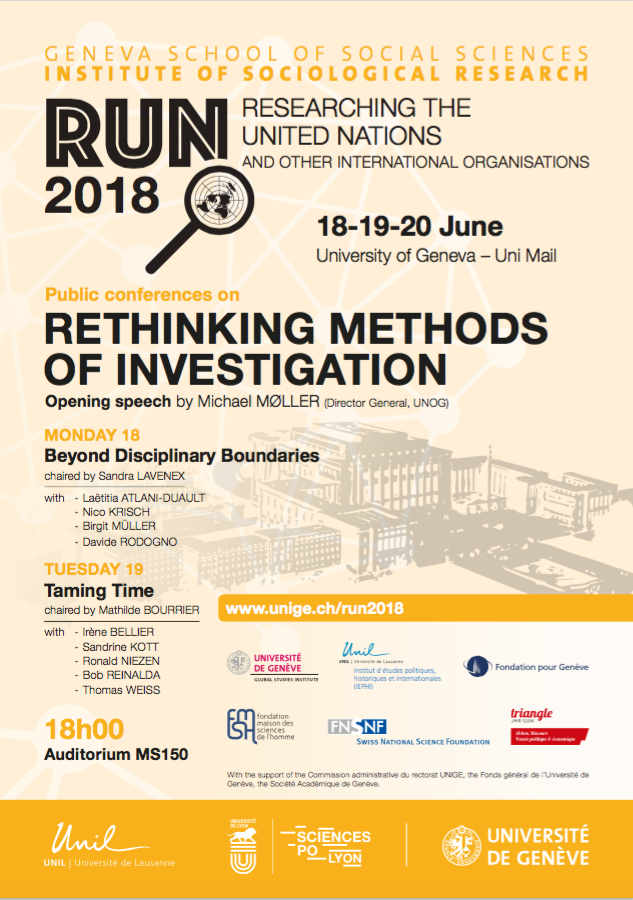Conferences
Monday 18 June 2018 - 6pm, UniMail
Opening speech by Michael Møller (Director General, UNOG) and by Yves Flückiger (Rector of the University of Geneva)
Speakers: Laëtitia Atlani-Duault (IRD, FMSH, Columbia University), Davide Rodogno (Graduate Institute), Nico Krisch (Graduate Institute) and Birgit Müller (EHESS-CNRS).
Chair: Sandra Lavenex (UNIGE)
This roundtable is a unique opportunity to bring together well-known scholars from different disciplines (history, political science, law and anthropology) specialized in the research on international organizations. IOs have been examined by scholars from a broad range of disciplines, relying on a large variety of methods. These methods however are also constantly evolving, and researchers from different disciplines often share similar methodologies. The objective is to discuss the link between disciplines and methods, but also to advocate for greater dialogue among disciplines tackling IOs. We aim to address questions such as the link between the methodology and the researcher’s disciplinary anchor, the extent to which methods enable researchers to go beyond disciplinary boundaries, and the added value and challenges related to inter-disciplinarity research from a methodological standpoint.
This first roundtable is conceived as a special event that gathers confirmed researchers to feed the debate around methods of investigation in researching the United Nations and other IOs.
Tuesday 19 June 2018 - 6pm, UniMail
Speakers: Irène Bellier (CNRS), Sandrine Kott (UNIGE), Ronald Niezen (McGill University), Bob Reinalda (Radboud University) and Thomas Weiss (CUNY).
Chair: Mathilde Bourrier (UNIGE)
The second roundtable is dedicated to discussing the issue of time and temporalities in IO investigations. Time is a polysemic variable. It encompasses the way IOs face their own history, but also the different temporalities of their decision-making processes. Operationaly, they navigate between crisis mode and routine mode and often times they do both at the same time. This complexity seems to be a blind spot in international organizations studies. Consequently the following questions may be raised: In what way does the concept of time become a vector to shed light on IOs’ characteristics? How can researchers methodologically address the evolution of IOs with respect to their changing and evolving practices and activities? What challenges poses the question of differentiated temporalities to a researcher?
This second roundtable is conceived as a special event that gathers confirmed researchers to embrace the vast question of time in the context of International Organizations.
